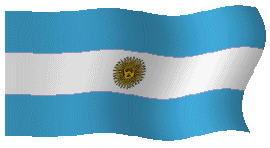
B"H
Jewish  Tours
Tours
 Buenos Aires, Argentina
Buenos Aires, Argentina
The large immigration of the 1920s consisted of Jews of different political positions and the whole spectrum of ideological orientation. All the Zionist parties were represented among Brazilian Jewry, and they left their mark upon the community. As a result, communal social Jewish life was greatly enriched. The first Congresso Sionista in Brazil took place in 1922, bringing together four movements – Ahavat Sion (São Paulo), Tiferet Sion (Rio de Janeiro, established in 1919), Shalom Sion (Curitiba), and Ahavat Sion (Pará) – founding the Federação Sionista do Brazil. One year before, in 1921, a Brazilian representative took part in the 12th Zionist Congress in Carlsbad. In the 1929 election to choose the Brazilian representative to the 16th Zionist Congress a total of 1,260 votes were cast, and for the Congress of 1934 the total number of votes was 2,647. The Zionist movement was very active within the Jewish communities, from Belém (Pará) to Rio de Janeiro, and in 1929, in Rio de Janeiro, Zionists assembled and marched through the streets in a public demonstration in which 1,500 people participated.
From the year 1930 Zionist youth movements were active mainly in São Paulo, Rio de Janeiro, and Porto Alegre: Hashomer Hatzair, Ichud Habonim, Dror, Gordonia and also the Scout movement Avanhandava. In the 1960s, Chazit Hanoar and Netzach were also active.
The leftist movements were also quite significant. The movement of left-wing Jews in Rio de Janeiro was connected with the Sholem Aleichem Library, Brazkcor, the Sociedade Brasileira Pró-Colonização Judaica in the Soviet Union, and the Centro Operário Morris Vinchevsky (the last two were established in 1928, ran a Jewish worker's school, and edited the periodical Der Unhoib). In São Paulo there were the groups Cultura and Progresso, as well as a small nucleus of Bund and later, in 1954, the Instituto Cultural Israelita Brasileiro (ICIB), the pro-Communist Casa do Povo (People's House), together with Teatro de Arte Israelita Brasileiro (TAIB) and the Escola Sholem Aleichem. Yiddish language and culture were key factors within these movements. The Jews were leaders in the Partido Comunista Brasileiro. In other communities, such as Porto Alegre, Belo Horizonte, and Salvador, there were also left-wing nuclei, comprising left-wing Zionists and Communists.
|
Visite nuestro sitio/Visit our home page: |